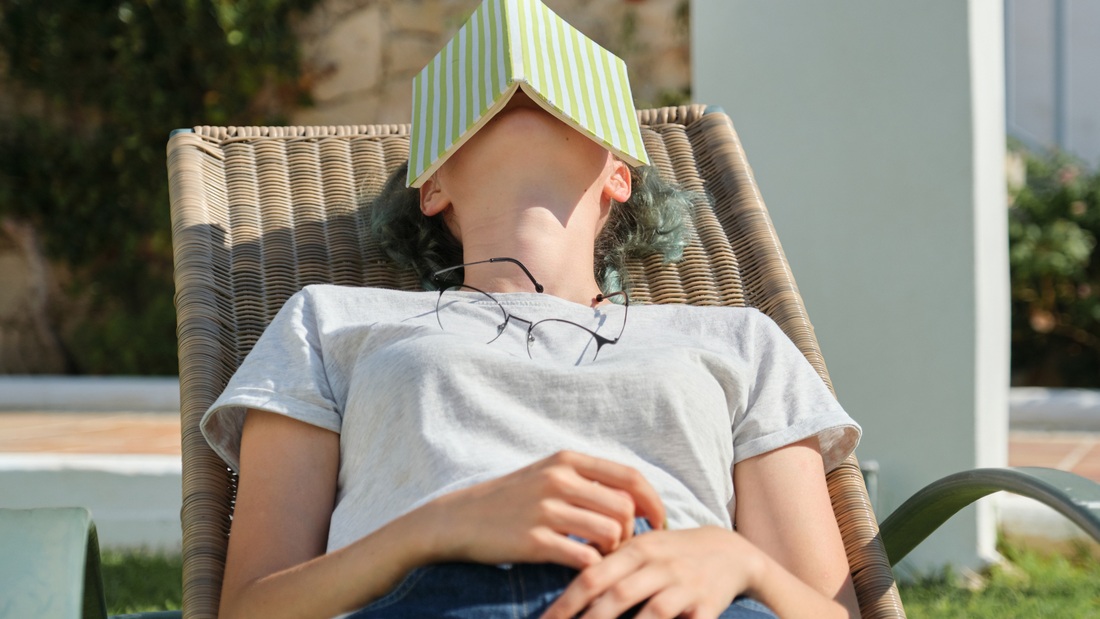
How Much Sleep Does a Teen Really Need? (More Than You Think!)
Share
If your teen is constantly tired, cranky, or distracted, it’s not just hormones or late-night TikTok marathons. It's probably due to a simple issue: they’re not getting enough sleep. Teenagers actually need more sleep than most parents realize. In fact, science says they need almost as much as toddlers!
“So, how much sleep does my teen need?” 💤
The American Academy of Sleep Medicine recommends that teens aged 13 to 18 get 8 to 10 hours of sleep every night. And that’s daily, not just on weekends or during the summer months.
Most teens are not getting that much sleep. In one national survey from the Center of the Disease Control, over 70% of high schoolers reported sleeping fewer than 8 hours on school nights. That’s a lot of under rested kids walking around school!
Why do teens need so much sleep?
3 words: For their brain 🧠
The teen years are a time of huge growth - emotionally, mentally, and physically. Even if they look like mini-adults on the outside, their brains are still “under construction.” When teens don't get enough rest, their brains pay the price.
Sleep is the fuel that keeps that construction going. It helps with:
- Memory and learning
- Managing emotions
- Decision-making
- Fighting off germs
- Physical growth
“But my teen is a night owl.” 🦉
This is actually biological. During puberty, a teen’s body clock naturally shifts. This means that they start feeling sleepy later (sometimes as late as 11:00 PM or midnight), even if they’re exhausted.
Unfortunately, most high schools still start between 7 and 8 AM, forcing them to wake up much earlier than their natural biology wants. For an adult, it might feel similar to being told to get up and function at 4:30 in the morning.
What happens when teens don’t get enough sleep? 🥱
The effects can show up in many ways:
- Irritability or emotional outbursts
- Difficulty concentrating or remembering things
- Falling grades
- Riskier behavior (unsafe driving, substance use, etc.)
- Symptoms of depression or anxiety
- Weakened immune systems
In short: less sleep = more problems.
“How can I help my teen get more sleep?”
While you can’t rewire their biology (or start school later), there are steps you can take to set them up for better rest.
- 🧑💻 Limit technology use around bedtime. Phones, tablets, and gaming consoles all give off blue light, which tricks the brain into staying alert. Try a “digital sunset” 30–60 minutes before bed to help their brains wind down.
- 📅 Encourage a consistent sleep schedule. Even on weekends, keep bedtimes and wake up times within an hour of each other. Wild swings make it harder to fall asleep.
- 💆Create a calming nighttime routine. Dim the lights and encourage herbal tea or a warm shower. Help them unwind with a non-digital activity like journaling, drawing, or reading a book.
- 🛌 Make their bedroom sleep friendly. A dark, quiet, cool room with cozy bedding goes a long way. Blackout curtains or a white noise machine can also help if they’re light- or sound-sensitive.
- ☕ Avoid caffeine late in the day. Many teens drink coffee, energy drinks, or soda without realizing it can interfere with sleep. Make sure this is limited in the evenings.
Final thoughts 💭
Sleep isn’t a bonus for teens, it’s a necessity! And while you can’t make them fall asleep, you can help them create an environment with habits that can support better rest and overall health.






















